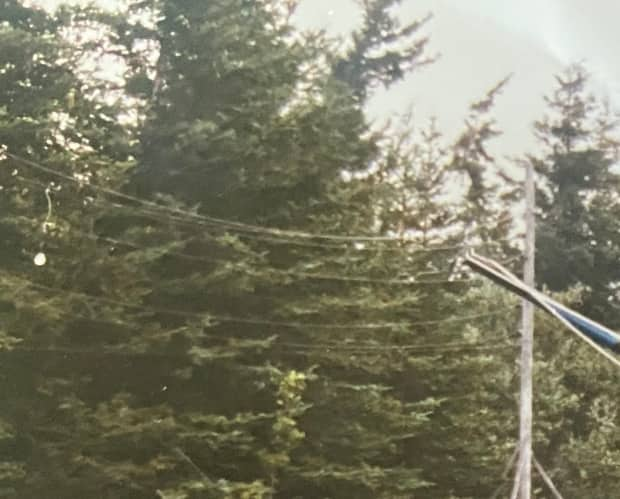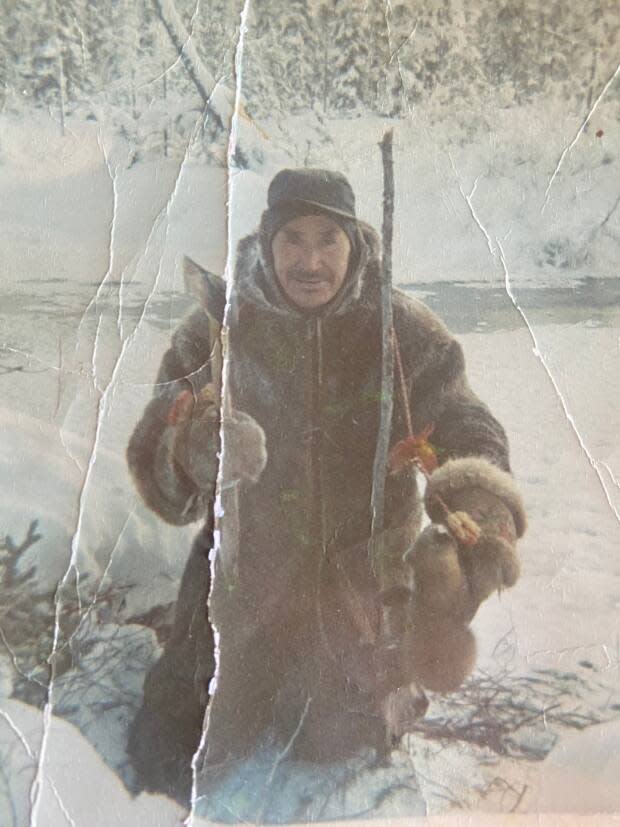Why this woman is working on revitalizing her N.W.T. mother's Chipewyan language

A graduate student at Royal Roads University with roots in the Northwest Territories is focusing on language revitalization.
Shawna Yamkovy's mother, Emmy Yamkovy, was born in in Łutsël K'é (then known as Snowdrift) and she spoke the traditional language of the nation, Dëne Sųłiné Yati.
"It was something that was familiar to me, I heard it growing up my entire life," Yamkovy said.
"[My mother] was a proud Chipewyan Dene woman and she shared other aspects of her culture through food and travelling up into the community and having family come down and visit us."
But Yamkovy, who was born in Edmonton, didn't end up learning her language from her mom.
Whenever she visited the community, she says her grandmother had to translate so Yamkovy and her grandfather could speak to each other.
The community is located in the east arm of Great Slave Lake in the Northwest Territories, about 280 kilometres from Yellowknife. It's accessible only by air, boat or snowmobile and has a population of about 350 people. Many of her family members still live there or in Yellowknife.

She says residential schools had a multi-generational effect when it comes to the language.
Less than 10 per cent of the 800 people in the band membership speak the language still, she says, and of them, most are over 40 years old.
Now, her final major project at university focuses on tackling the dwindling use of the language. She's working on language revitalization strategies for Dëne Sųłiné Yati, as part of her capstone project for her degree.
Yamkovy says though she never learned her language as a youth, as her mother put focus on English living in the city, her mother instilled the love of the language in her nonetheless.
And it's part of what inspired her academic journey.
"I had an interest for quite a while," Yamkovy said.

Time to protect the language
Łutsël K'é Dene have already begun work protecting important aspects of the community.
In 2020, it won the United Nations Equator Prize after signing a historic agreement with national and territorial governments to create the Thaidene Nëné. It's a 26,000-square-kilometre protected area between the Canadian boreal forest and the arctic tundra.
Yamkovy says now, it's time to start work on preserving the language.
While she's still learning it, and uses an app called First Voices to help her, Yamkovy is also working with the community and has hopes of implementing a plan and curriculum to recapture the language.

"With the low percentage of fluent speakers, it kind of feels like now is definitely the time to capture it from the actual fluent speakers who are [elders] now," she said.
Yamkovy said she's partly doing it for her late aunt, Sandra Faye Lockhart, who was an Indigenous rights activist and a Master of Arts student in global leadership at Royal Roads University in 2018. Her aunt passed away in June 2019 before completing the program.
"My late aunt was my mentor and like a mom to me, as my own mother had passed away in 2001," Yamkovy said.
"She encouraged me to take the degree and I also wanted to carry on with the path she left for her loved ones, as well my late mom and grandparents who always advocated for post secondary education."

Her goal is to pinpoint what the community's needs when it comes to rejuvenating the language through consultation.
"I'm really hoping that, again, it's a first step, even if it's a proposal, so I could have recommendations or … the band could use it for opportunities for funding, and those sorts of things," she said.
"But hopefully, that [the language] does come back into the school system and be something that children can learn at a young age, or have the opportunity [to]."

 Yahoo Movies
Yahoo Movies 